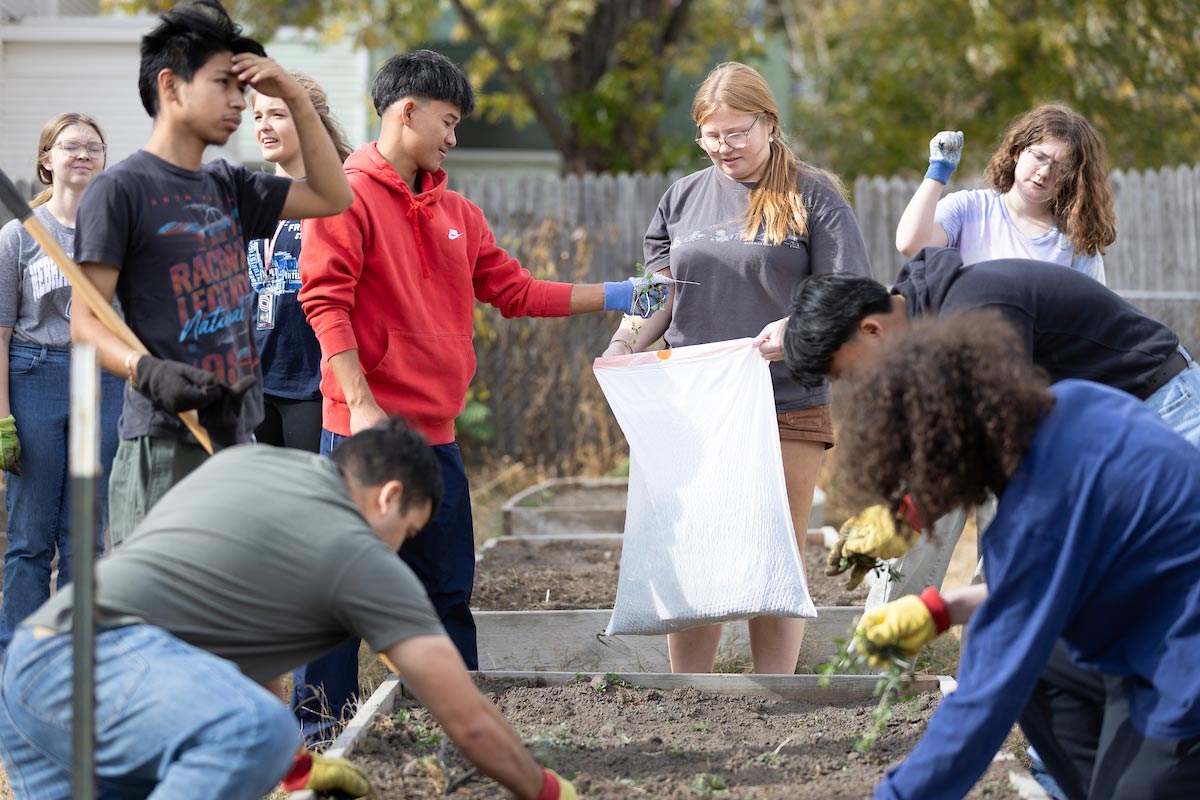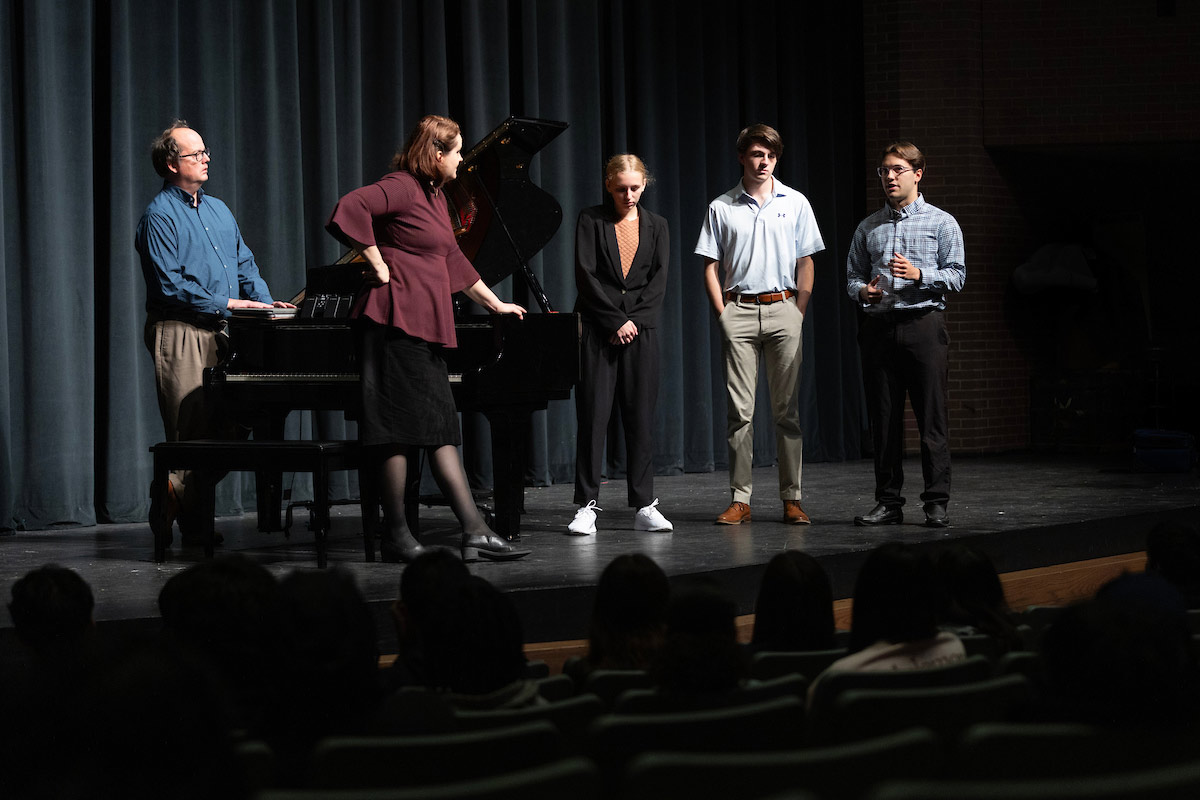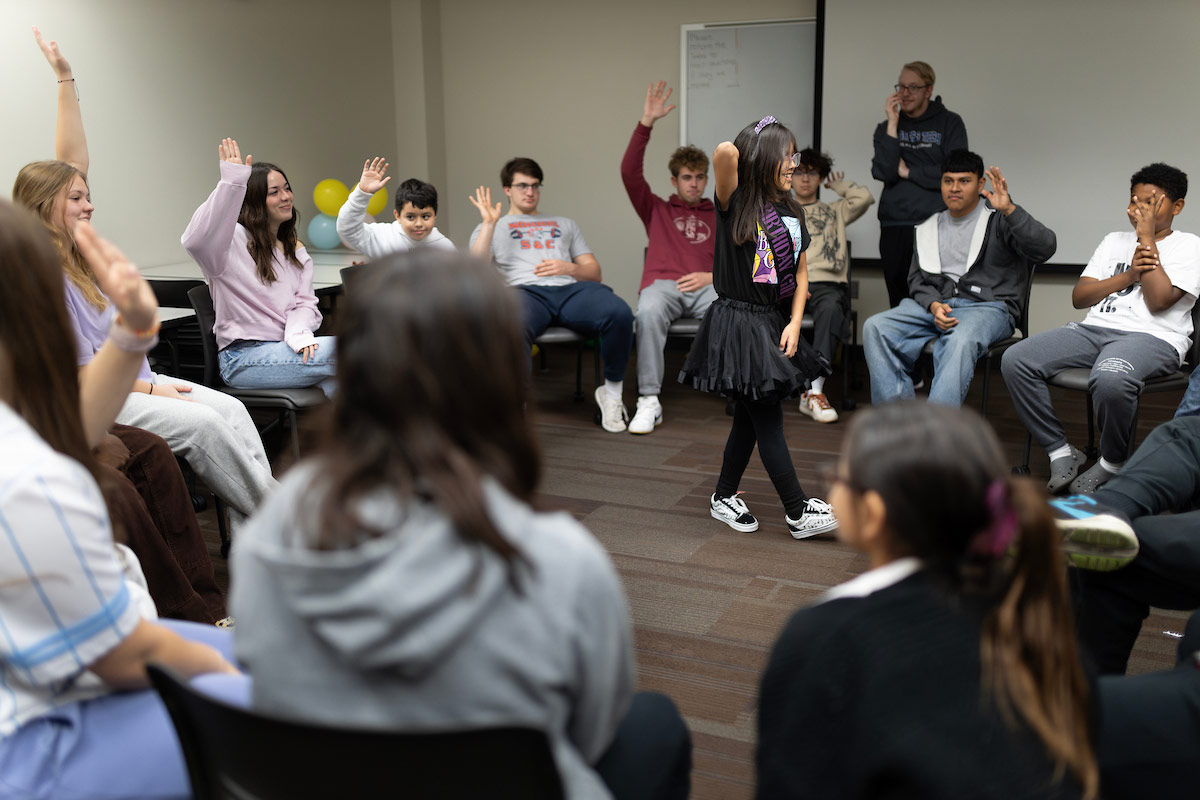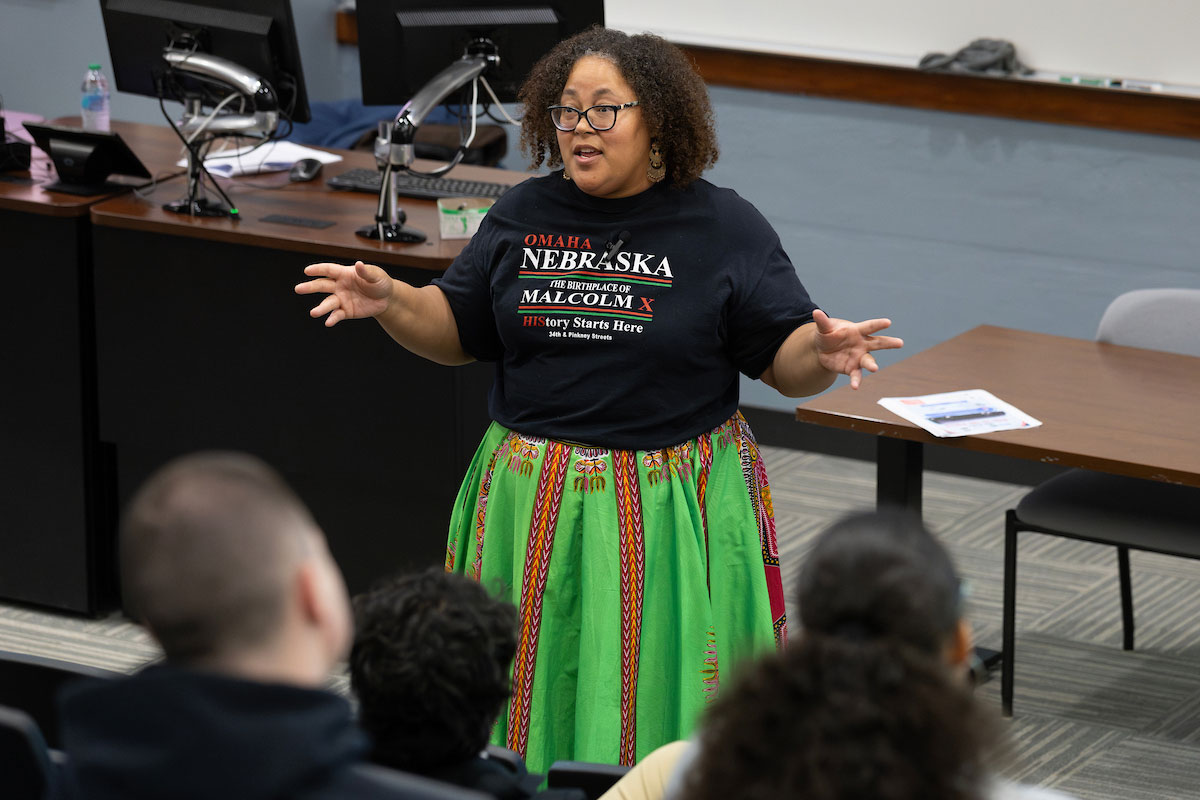UNO Service Learning: Helping Hands, Bright Futures
The Service Learning Academy offers students the chance to connect classroom learning with real-world impact, empowering both their personal growth and the Omaha community through meaningful partnerships and projects.
- published: 2025/04/29
- contact: Bella Lockwood-Watson - Office of Strategic Marketing and Communications
- email: unonews@unomaha.edu
Imagine a classroom where students not only learn theory but also actively apply it to real-world challenges. Instead of simply studying how to curate lesson plans, for instance, a student designs and implements an actual lesson plan for an English as a Second Language (ESL) course and applies those concepts while working with families of English language learners in Omaha. This is the heart of the work facilitated by the Service Learning Academy (SLA) at the University of Nebraska at Omaha (UNO), where academic learning meets community impact. Through hands-on projects and meaningful partnerships, students don’t just gain valuable professional experience, they leave a lasting mark on Omaha, shaping both their future careers and the community’s growth.
What is Service Learning and How Can You Get Involved?
Service learning, a high impact method of teaching used by faculty members across UNO, is a powerful component of UNO’s educational approach, allowing students to apply classroom learning in real-world contexts while collaborating with community partners. UNO’s Chief Engagement Officer, Julie Dierberger, Ph.D., highlighted how service learning is a vital tool for students to engage with their community and enhance their academic experience.
“Service-learning requires collaboration, and the impact is significant for both students and community partners,” Dierberger shared. The SLA trains faculty members and works with community partners to support the development of an array of rigorous service-learning courses for students across disciplines, from social work to business and education.
Students can search for service-learning courses as a designation or ask their advisor about opportunities. When students participate in hands-on service learning courses, they’re enriching their own education in a way that gives back to the community by addressing pressing issues in real time.
Service Learning and Workforce Development
The connection between service learning and workforce development is undeniable. Katya Romanova, a graduate assistant in SLA and a dual master's student in Management Information Systems (MIS) and Business Administration (MBA), sees firsthand the way service learning enhances career readiness.
Romanova, who has worked on several community-based projects during her time in the SLA, said, “The SLA has allowed me to practice project management, which is a crucial skill for my future career as a project manager. It has taught me how to organize events and manage logistics while working with different stakeholders, a skill set I’ll need in my career.”
The impact is evident in the experiences of students like Sam Corey, an undergraduate student majoring in neuroscience. Corey participated in a data literacy course, applying his learning to a project with Fontenelle Forest.
“We helped Fontenelle Forest analyze their program sales data and understand trends. It taught me how valuable data visualization can be for making informed decisions in a real-world context,” Corey explained.
SLA’s Impact on Students
Service-learning courses also shape personal and professional growth. Litzy Ramirez Chavez, an elementary education major with an endorsement in English as a Second Language, credits her service-learning course for enhancing her perspective as an aspiring educator.
"I grew up in a Spanish speaking household. Spanish is my first language and now I would like to create positive impacts on future generations. My involvement with the Service-Learning Academy has allowed me to gain experience applying strategies that support Multilingual Learners," Ramirez Chavez shared.
Her experiences also emphasized the importance of flexibility and effective communication, skills she plans to use in her classroom to foster relationships with both students and parents. These experiences are critical to exploring career development, and affirmed this field is where Chavez wants to be.
Making a Difference in the Community
UNO students make an impact on the community through service-learning courses; their influence is felt throughout the entire community, both on and off of campus. Through experiential activities in courses with community partners, service learning facilitates real change.
For example, Ramirez Chavez recalled, “One of my favorite moments was when the families created their Dream Boards. It was inspiring to see the parents supporting their children’s dreams. One parent even told me that their children's dreams were also theirs. It was heartwarming to get to watch this family connection.”
The community benefit is also echoed by Romanova, who appreciates SLA’s focus on the Omaha area. She noted that through SLA, UNO students can provide valuable support to local community organizations by using their academic skills to solve real problems.
“We have community partners who are dedicated to helping others but might lack technical skills. Through service learning, students like me get to offer their expertise and help organizations make data-driven decisions,” Romanova explained.
Setting Future Generations Up for Success
The most compelling outcome of service-learning courses is the long-term impact it has on both students and the community. By using these different initiatives, such as the college prep program, students help families in the community navigate the education system while instilling a sense of belonging and possibility within themselves.
“Parents and students in the community get to see themselves in future roles, and we are there to help them create pathways to success,” Dierberger emphasized.
For students like Ramirez Chavez, SLA’s college prep work is a powerful reminder of the far-reaching effects of education. “I love that we’re giving families the resources they need to feel confident about their children pursuing higher education,” Ramirez Chavez said. “The relationships we build and the resources we provide help create opportunities for future generations.”
Through service-learning courses, UNO students leave a legacy that empowers the community and prepares them for careers in fields that require both intellectual and social responsibility.
About the University of Nebraska at Omaha
Located in one of America’s best cities to live, work and learn, the University of Nebraska at Omaha (UNO) is Nebraska’s premier metropolitan university. With more than 15,000 students enrolled in 200-plus programs of study, UNO is recognized nationally for its online education, graduate education, military friendliness and community engagement efforts. Founded in 1908, UNO has served learners of all backgrounds for more than 100 years and is dedicated to another century of excellence both in the classroom and in the community.
Follow UNO on Facebook, Twitter (X), Instagram, LinkedIn, and YouTube.




